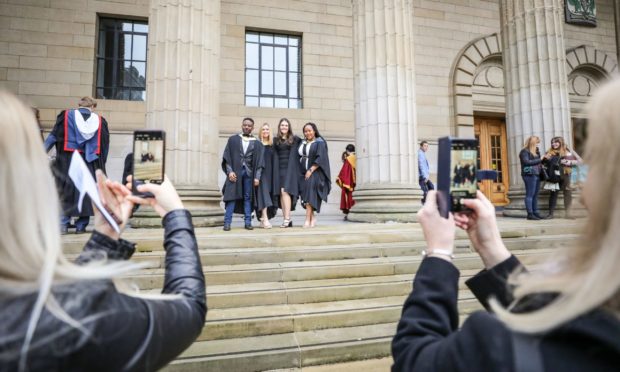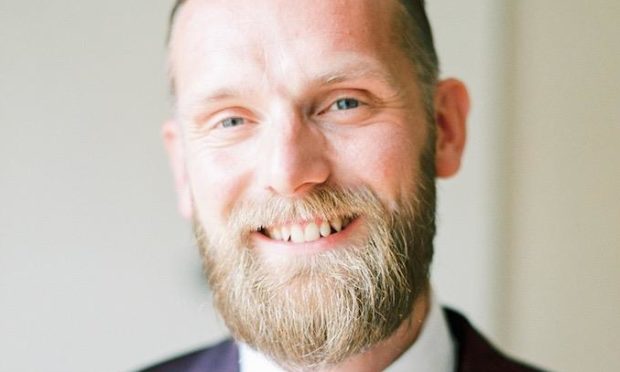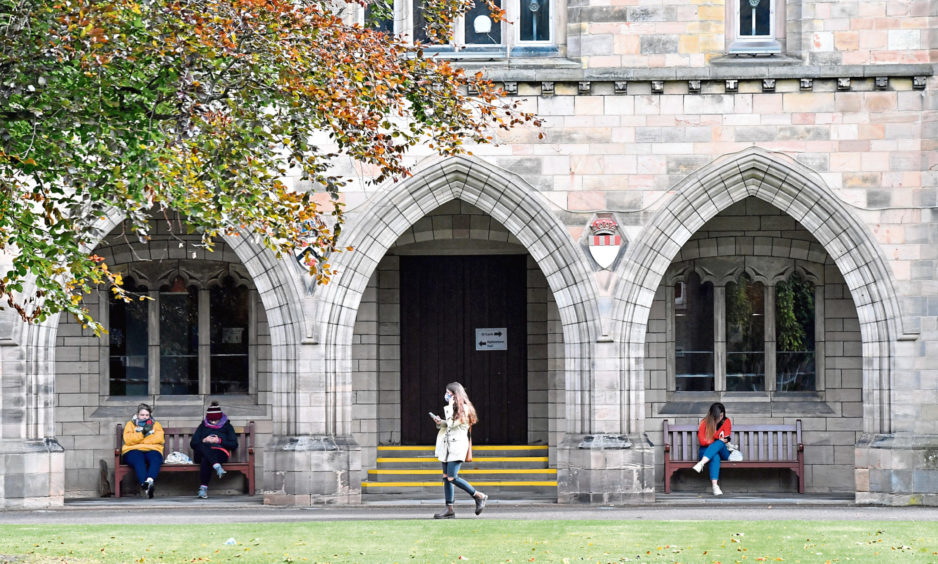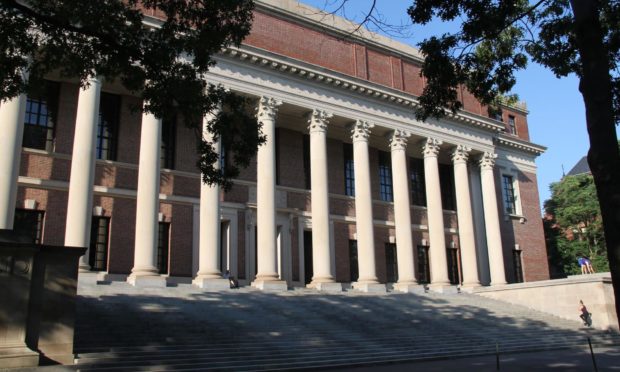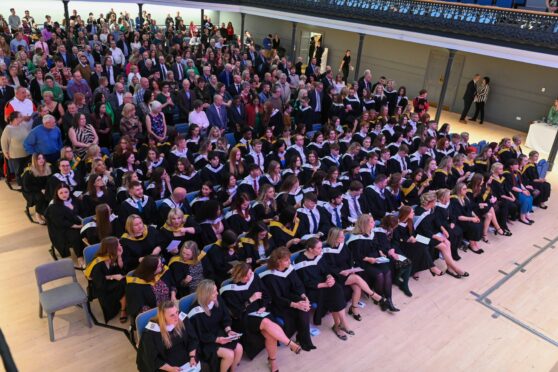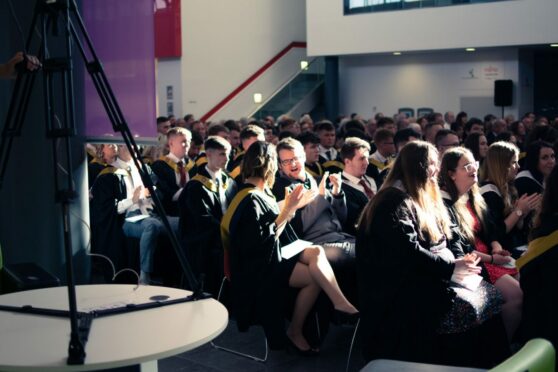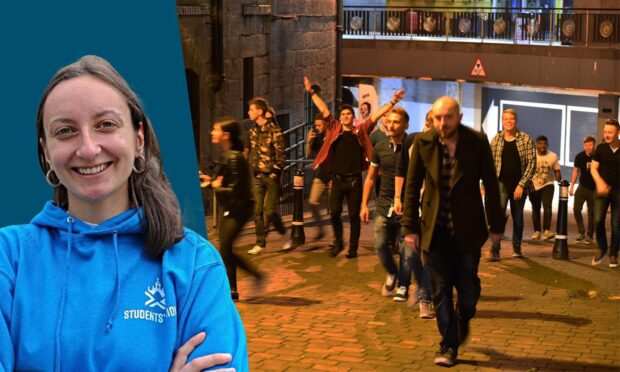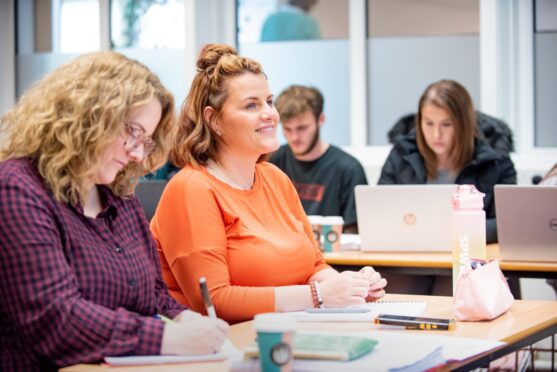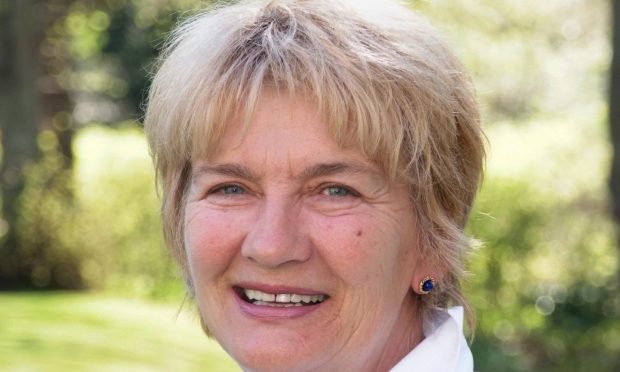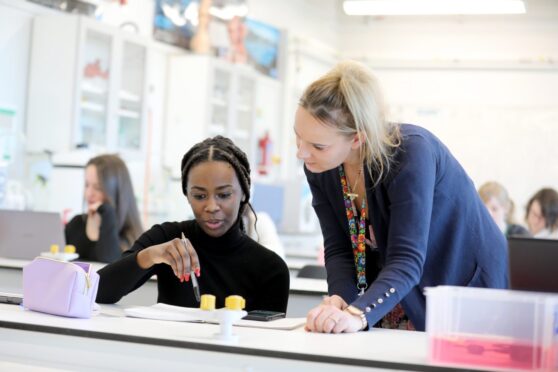A legal expert says any gambit by the Scottish Government that might allow Scottish students to continue participating in the Erasmus university programme is unlikely to succeed.
Prime Minister Boris Johnson announced on Christmas eve that UK universities will be withdrawn from the Erasmus scheme, which has attracted hundreds of thousands of students over more than 30 years.
Students from institutions in Scotland and the UK were given the opportunity to study at European universities without additional costs under the initiative, which the Scottish Government estimates generates £7 for every £1 invested, for university towns and cities.
There have been suggestions the Scottish Government might make a case to Westminster that would let students north of the border continue being part of Erasmus, but the chances of making that happen appear slim at best, especially since the UK Government has since announced its own Erasmus-like programme, named after Second World War codebreaker Alan Turing, with an annual budget of £100 million.
Scottish Erasmus arrangement unlikely
Professor Paul Cardwell, of Strathclyde University’s law school, specialises in EU law.
His research uncovered the positive impact Erasmus has had on Scottish students, including better grades and exam results for those who spent time studying abroad.
Asked if it would be likely Scottish institutions could stay part of Erasmus in a similar way Northern Irish ones will – where the government in the Republic of Ireland will cover the estimated €2 million annual costs of Northern Ireland students to continue participating in Erasmus – Prof Cardwell said it wouldn’t be an easy system to replicate, given the particular situation in the province.
“They also have much smaller institutions (in Northern Ireland), although of course Erasmus does cover schools and vocational placements as well.
“There are non-member states of the EU that take part.
“It is an EU programme. It is governed by regulations that decide what countries can participate.
“Erasmus includes Norway, Iceland etc, and also states in the enlargement process like Serbia and Turkey, and it is open to neighbourhood countries as well.
“But then, of course, we have the domestic issue of having the competence to enter into an international legal agreement which the UK has, but Scotland doesn’t.
“So that’s domestic problem that would need to be overcome somehow.
“I can’t really see the UK Government doing that because the new scheme that they’ve launched, the Turing scheme, they’ve made a point that it is UK wide. Even though, of course, education is devolved.”
Not just about money
Prof Cardwell notes the Erasmus scheme is more than just pounds generated for the economy.
On top of the evidence showing students tend to achieve better degrees, there are several “unquantifiable” elements that are brought by exchange programmes, including establishing institutions overseas.
He added: “Traditionally the UK as a whole has received more incoming Erasmus students than we sent out. Partly that was for linguistic reasons, but also the way in which our degrees are structured.
“Having students from other European countries has led to a greater level of diversity, at minimal or no cost to the universities and with much wider benefits for society in terms of student spending
“And most Erasmus students across will have a great experience and go back as ambassadors for Scotland or the UK. So in terms of teaching and research, it helps to solidify many of these links, which cannot easily be quantified.
“We can quantify the numbers going in and out and we can quantify our costs a little bit, but we can’t take into account just how important it’s been for students to get to know Scotland, to get to know wherever they are, wherever they have been and either stay and contribute to the economy through working or, once they go back, to either convince others to come — perhaps to do a masters degree — or to be informal ambassadors in other ways, and that’s much more difficult to quantify.”
Turing scheme
More than £100 million will be spent on the post-Brexit replacement of the Erasmus exchange programme for UK students next year, the UK Government announced.
The Turing scheme — named after Bletchley Park cryptoanalyst Alan Turing — will provide funding for around 35,000 students to go on placements around the world from September.
Universities UK and Universities Scotland, which represent higher and further education bodies, did welcome the announcement of a replacement scheme.
But Prof Cardwell points out bonds between universities take time to set up and leaves more questions left unanswered than before.
“One of the reasons I’m sceptical of how quickly it can be set up is that Erasmus has evolved over 30 years,” he added.
“Institutional relationships which form the basis of an exchange take a long time to set up.
“Usually if we’re talking about the next academic year, we would normally be selecting students and preparing them just after Christmas to go in the summer – especially if it was somewhere like Australia, which will start in July.
“To set up a new scheme, get institutions to bid for the money and find out who’s going to operate it (take time) — is it going to be the British Council or is it going to be central government?
“How’s that going to work? Where is the money going to go — is it going to go to universities? How do they distribute it? And what’s crucial about it is: who’s at the centre of this? The students.
“We know how Erasmus works, students get individual grants, which comes from a national agency, which is distributed from the EU budget.
One hundred million pounds sounds a lot but it probably wouldn’t go that far.”
Professor Paul Cardwell
Prof Cardwell says the money being allocated to the new Turing scheme by the UK Government will be stretched thin to cover the anticipated 35,000 students each year.
“With a budget of £100 million, a lot of people have done the calculation of that being £2,800 each, which isn’t a lot (and) doesn’t take into account any of the institutional costs
“What’s important about this is that in Erasmus, and other exchanges outside Europe, they usually work on the basis of a fee waiver.
“A lot of noises are being made, particularly by Conservative MPs, saying ‘students will be able to go to elite US universities’.
“Those universities are not necessarily just going to let in lots of UK students and let them off paying the fees just because they’re getting a scholarship from the UK Government.
“But there’s no way I can see how the Turing scheme would allow for tuition fees, especially not somewhere as expensive as the US. And that means the budget would very much disappear.
“One hundred million pounds sounds a lot but it probably wouldn’t go that far.”
He continued: “If you’re trying to, as the stated aim of the Turing scheme is, help the most disadvantaged in society, how do you reach those?
“How do you get those students to be able to participate, especially when you’re not really able to guarantee whether they are going to be able to benefit from a programme that is going to not leave them financially worse off.”
